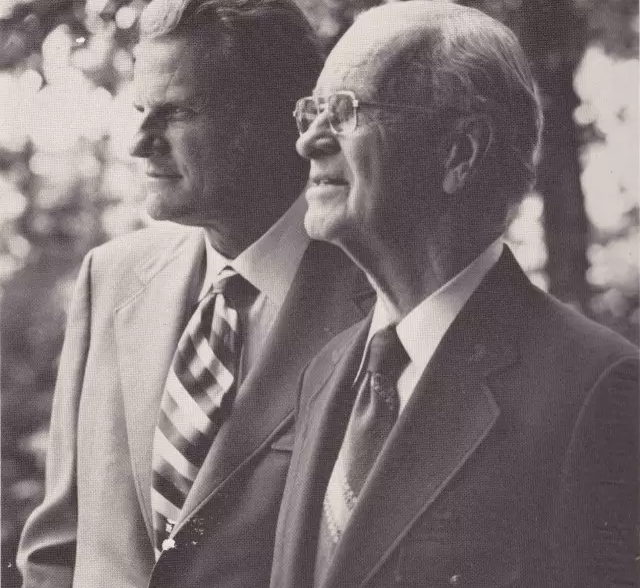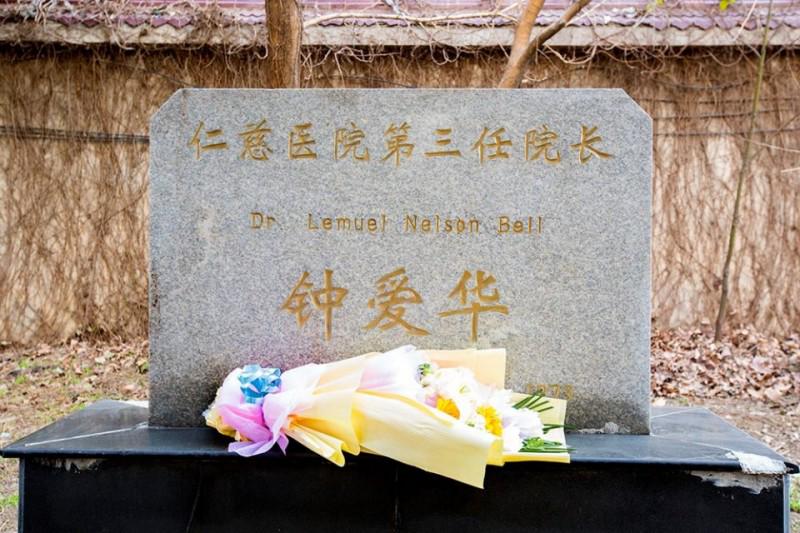World renowned evangelist Billy Graham passed away at the age of 99 in his home on February 21, 2018.
The preachers won several titles "America's pastor", "pastor to presidents", "preacher who preached the gospel to more people than anyone else in history", and "the conscience of the United States". The man who was born and raised in the United States was also called "China's son-in-law".
Behind the name were the Chinese heart of his father-in-law, a medical missionary in China, and the deep complexities of his wife Ruth, a "daughter of Huaiyin".
Billy Graham and his wife went to Huai'an, China, Ruth's birthplaceand home for 17 years. The preacher's sons and grandsons have been to China a few times and some of them have visited Ruth's birthplace, keeping precious bonds with China that last for generations.
Lemuel Nelson Bell's heart for China
Billy Graham's father-in-law, Lemuel Nelson Bell, was a Presbyterian missionary serving in China for 25 years.
Once a baseball player in high school, Bell rejected the offer from a famous baseball team and stuck to his original intention of studying medicine and being a missionary overseas. After graduation from medical school, the 22-year-old young man came to China with his new wife who was two years older than him.
After a 19-day sailing trip, they first arrived in Shanghai and settled in a rural town of Huaiyin (now called Huai'an), Jiangsu.
Bell established the Love and Mercy Hospital, then the world's largest Presbyterian hospital and the predecessor of the Second People's Hospital of Huai'an. The hospital owned 380 beds and provided invaluable medical service to rural people in northen Jiangsu province.
After the Japanese army invaded China in 1937, he risked his life to return to the hospital with his wife and children, saying that where God wanted him to be was safest in a letter. His brave deeds and service won him the title of having "a Chinese heart" from Chinese people. However, the Bells were forced to stop their service in China due to the Battle of Pearl Harbor in 1941.
But his heart for China never changed, which indirectly influenced Billy Graham. In his late years, Bell was one of Graham's most reliable colleagues and counselors.
Ruth Bell Graham, a "daughter of Huaiyin"
Bell and his wife worked in the Love and Mercy Hospital and had four children including Ruth, their second daughter. Ruth was born in a two-story brick house in Qingjiang in 1920. Her elder sister said that Ruth and she were "made in China".
Fluent in Chinese and English, she spent most of her first 17 years living in Huai'an and had a deep burden for China. According to historical records, Ruth, God-fearing at a very young age, prayed to God that she could be a martyr. Hearing her prayer, her older sister also prayed to God not to answer the prayer for she was just a little girl. When Ruth grew up, her dream was be a single missionary in Tibet.
In a letter to her grandfather when she was nine years old (in 1929), she said she loved China. The love didn't decrease as the circumstances changed or she grew old. She witnessed that she loved Chinese people just as her parents did.
In 1975, she was asked what private affairs to be done when Billy Graham held an evangelistic crusade in Taiwan. She replied that she would customize two tombstones for her parents in a local marble factory because the gravestone of the Bell couple who loved China should be made in the country.
- Translated by Karen Luo

















